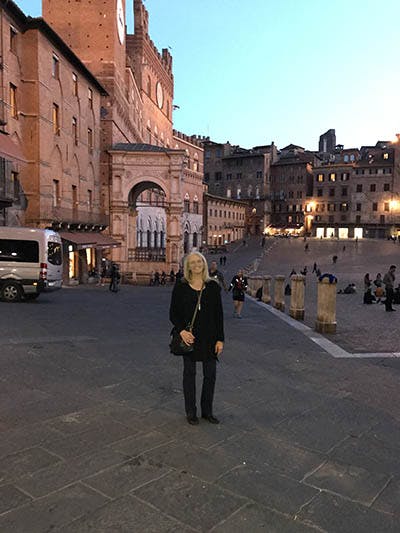Change for anyone can be difficult. But with guidance and a plan, even the most difficult transitions are possible.
These guidelines will soon be put into practice in Italy thanks to a Fulbright Award given to a University of Georgia College of Education professor. Laura Bierema, a faculty member in the college's department of lifelong learning, education and policy, will be traveling to Padua, Italy, this spring as a Fulbright U.S. Scholar to research higher education teaching methods, student exchanges and partner programs.
 Bierema will work with associate professor Monica Fedeli at the University of Padua, collaborating on Fedeli's "Europe 2020" project. This European Union initiative aims to transform university-level teaching, and Bierema's background in adult learning and organization development will be a good fit with the project.
Bierema will work with associate professor Monica Fedeli at the University of Padua, collaborating on Fedeli's "Europe 2020" project. This European Union initiative aims to transform university-level teaching, and Bierema's background in adult learning and organization development will be a good fit with the project.
Bierema began her work in Italy last spring, when she conducted faculty development workshops at Padua. Now, she is returning to collaborate on a more extensive research project with Fedeli that examines faculty adoption of change and cultural aspects of university administrations. Bierema will also be coteaching, and the experience will allow her to introduce her latest textbook, "Organization Development: An Action Research Approach," to an Italian audience.
But the work goes beyond developing new teaching methods for faculty.
"In the meantime, we're also trying to develop faculty and student exchanges, and they have asked me if I could help them explore a dual master's and doctoral degree program," added Bierema. "And, universities in Siena, Florence and Padua are looking at doing a collaborative project between the three schools—it could be faculty/student exchanges or a dual degree where students could have experiences there and in the United States."
She also will have the chance to explore future partnerships through UGA's Cortona, Italy, campus. It's a resource that goes beyond UGA's visual and performing arts programs, which have traditionally held study abroad classes there, she said, and given the collaborative nature of Italian universities, it may be time to explore new partnerships.
Bierema will also work with a colleague from the University of Texas who is bringing a delegation of students for a five-day tour of educational systems around Italy. Bierema is using this opportunity to bring University of Georgia students over to collaborate and learn along with the Texas students. "That could be a really great experience for some of our students," she added.
Overall, the Fulbright project provides puts the action-research model taught in the College of Education's department of lifelong learning, education and policy into practice, with the potential for huge impact on higher education in Italy. By combining learning and change, the model is strong both in and outside the classroom.
"And the fields of adult education and organization and development are thriving in Italy, and they are really hungry to learn. But they don't have access to the same textbooks we do, and our teaching pedagogies differ," she said. "This project has brought together faculty from all over the world, and I actually think this is going to be a very long-term collaboration because of it. It's exciting to be in that mix."